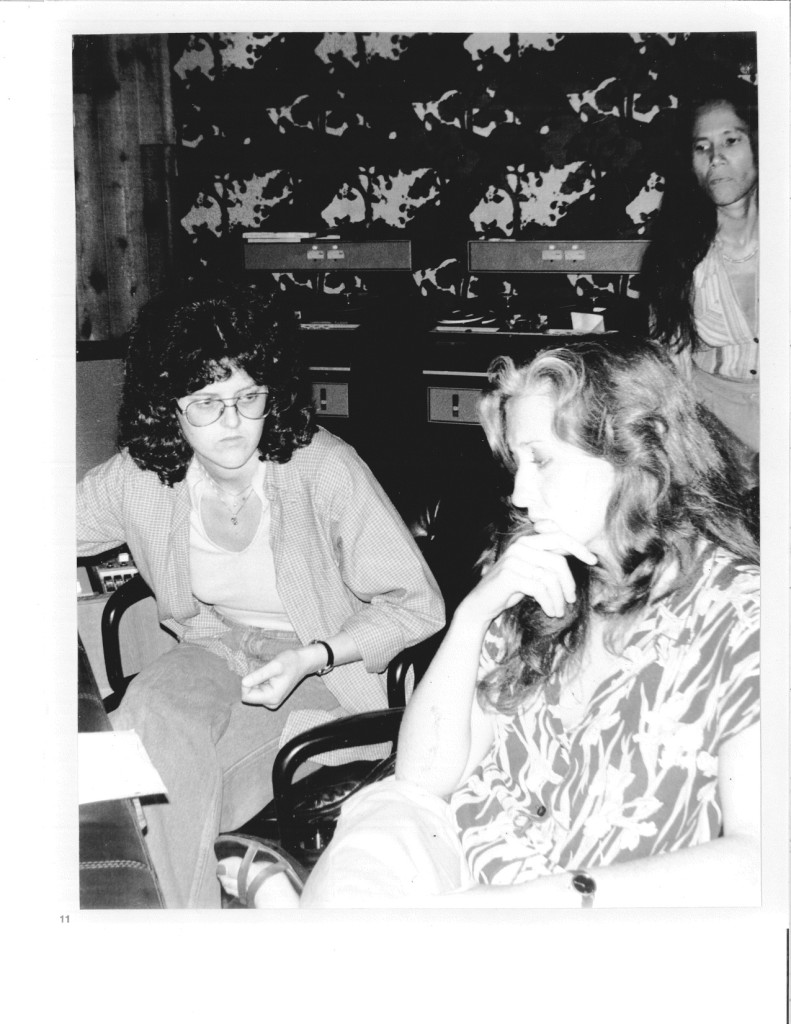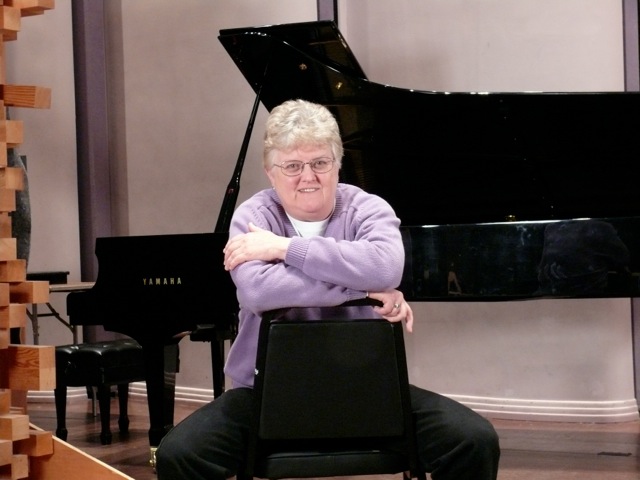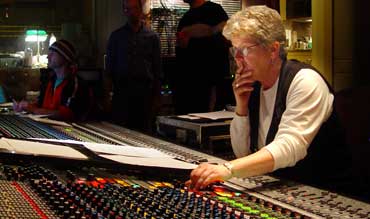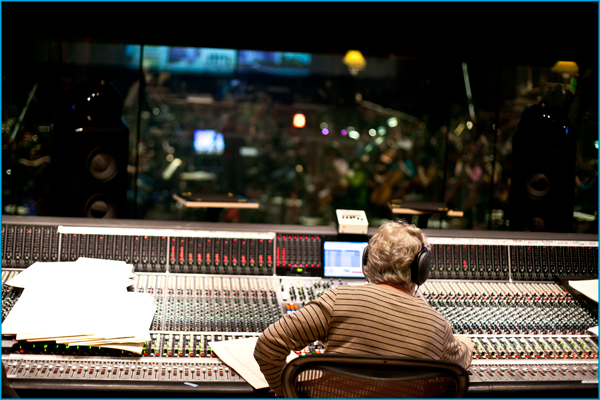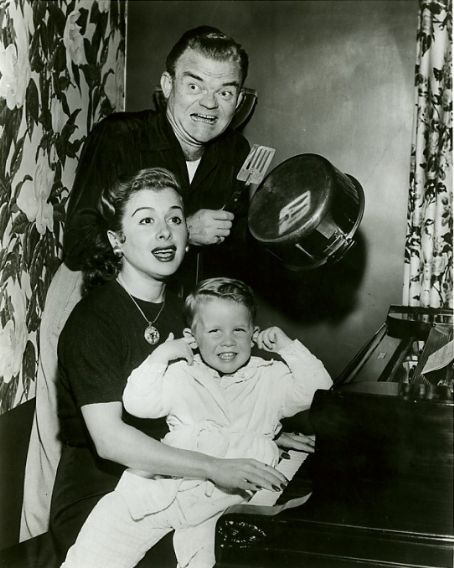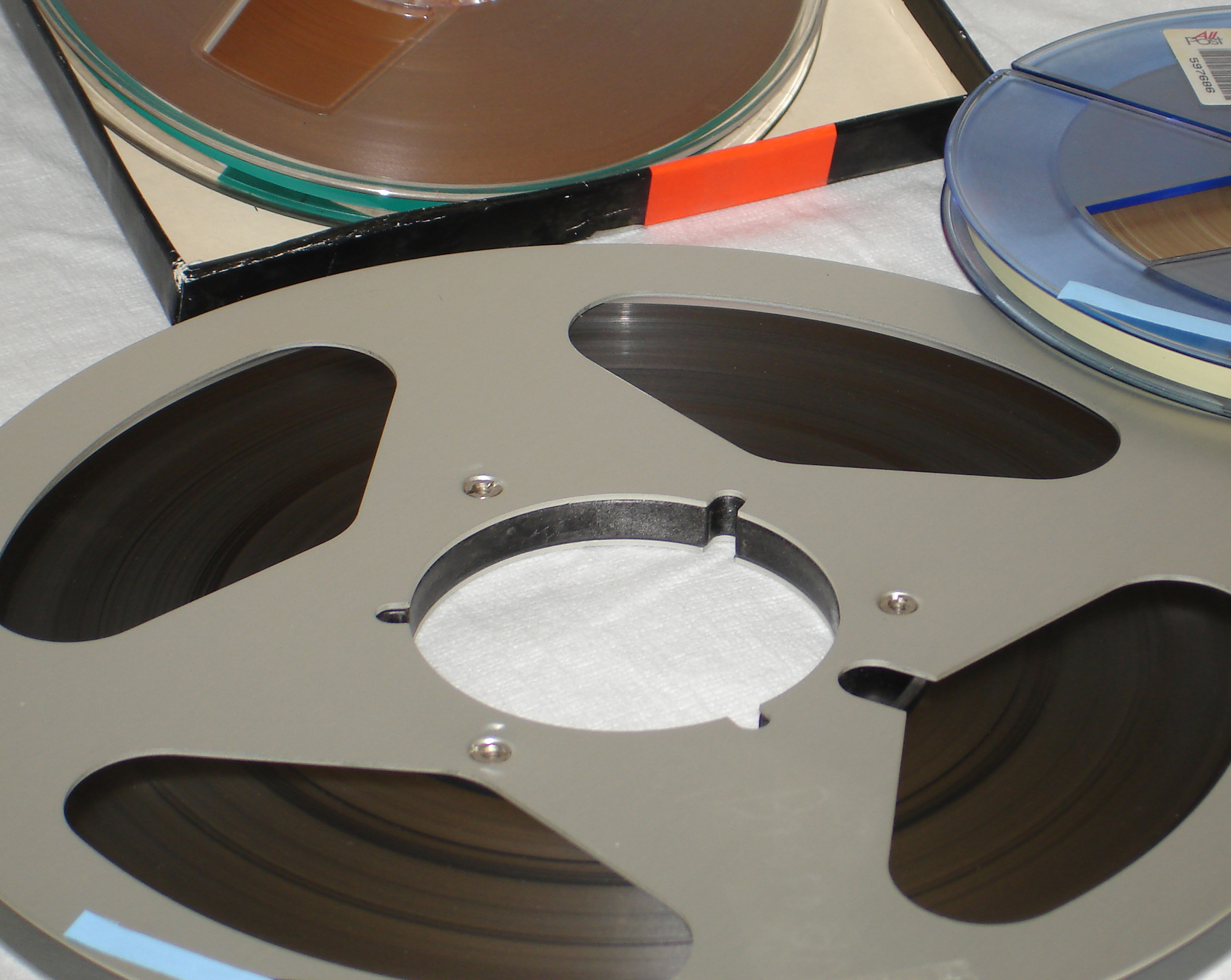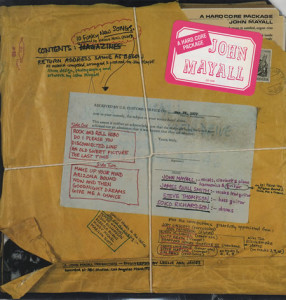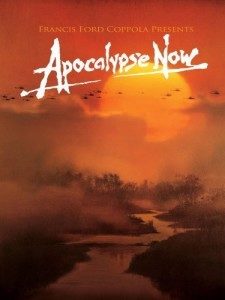
From “Girl Engineer” to Re-Recording Mixer – Sherry Klein
 Sherry Klein is an Emmy-nominated re-recording mixer and a pioneer of women in audio in both music and television. Sherry became a recording engineer at Larrabee Studios in the late 1970s – one of a handful of female engineers in Los Angeles at the time and possibly one of the only female re-recording mixers in town when she moved into post in the early 1980s.
Sherry Klein is an Emmy-nominated re-recording mixer and a pioneer of women in audio in both music and television. Sherry became a recording engineer at Larrabee Studios in the late 1970s – one of a handful of female engineers in Los Angeles at the time and possibly one of the only female re-recording mixers in town when she moved into post in the early 1980s.
Sherry’s television credits include Bull, Queen of the South, Burn Notice, Sons of Anarchy, Falling Water, The Shield, and Arrested Development. She mixes dialogue and music with her partner Scott Weber, who handles sound effects and Foley.
What’s your music background?
I took all my music classes in Manhattan. Growing up all I ever wanted to do was study music and play guitar. I would travel to the city to learn blues fingerpicking style at the Folklore Center in Greenwich Village. And on weekends played small clubs and coffeehouses in the NY and Jersey area. After High school I went to College in St Louis, Missouri to major in music composition.. 6 months into mornings filled with classical counterpoint and fugue, I decided I would rather study jazz. There was only one school for me, and that was Berklee College of Music, in Boston. I got accepted and then spent the next six months hitchhiking cross-country before moving to Boston.
While attending Berklee, I was pretty much a monk to music and composition, and after a few semesters, I found that I was having difficulty writing and composing. I could analyze a Charlie Parker solo on the subway, Ace my exams .. but I just couldn’t innovate anymore. Learning the nuts and bolts of music theory seemed to limit my creativity. I went on to study independently at Boston School of Electronic Music and took various classes all over town… basically whatever interested me in the areas of sound and music. Even audited (snuck into) an acoustics class at MIT… I did crazy stuff to get a little bit of everything in.
What I realize in hindsight is that I have a very technical and organized mind. While in college I memorized all my scales and theory exercises using mathematical formulas, but in reality, I sucked at math and practically flunked it in high school … it just wasn’t presented to me in a way that I saw any use for it in my life, but as soon as I was able to make sense of it in my life, i.e., in music… math and I got along much better!
How did you get into sound?
I started hanging out downstairs at the 2-track studio at Berklee and became fascinated with sound. Soon after leaving Berklee, I got a job working for Hub Recording Studios. I was the girl in the front who handled phone calls and stuff. Eventually and begrudgingly, the boss ” allowed” me to become an assistant engineer. I also began working live sound in clubs around Boston and working for a few local bands. One night a couple of guys came over to the studio to do some wiring work. We talked for a while, and they said they were building a 16-track recording studio. They asked me if I would be interested in joining them … that was a no-brainer. I said “Hell yeah! It proved to be some of the best times I ever spent during those early years.
We wired everything in that studio. We built a shell within a shell that sank within the first year. Physically I was the smallest one, so I ended up doing much of the wiring between the ceiling and the shell. I could wire and solder anything at that point. We had to make many compromises because our funds were very limited.
For a DDL: we used our concrete basement and would put a Neumann U-87 in bidirectional mode catching the bounces off the wall and feeding it back upstairs. That was our DDL because we couldn’t afford to buy a real one.
- Hammond Springs
- Hammond Springs
- Hammond Spring Reverb
Our reverb unit was a bastardized set of Hammond springs that sat under our little homemade console; we would change the reverb time by putting small pieces of fiberglass on the springs. (Above examples of Hammond Springs, not exactly the ones used by Sherry.)
There were so many crazy things we did to emulate the real stuff that we couldn’t afford. When we positioned amps and mics just right, in that basement, we could get some great sounds! It was an amazing learning experience because we had to create sounds in the most uncanny, but organic ways! After a few years, a new partner joined us and with him came a “real” console and that helped to prepare me for the next step I was about to take.
I left Boston in 1976 to move to Los Angeles and only knew a few people in town. The record business was a big and lucrative industry at that time. There were many recording studios, and I think I circumnavigated all Hollywood looking for a job as an assistant engineer. Larrabee Studios called me back first. I also got lucky because I had a client from Boston that gotten signed and was coming to LA to do an album. They contacted me and asked if I could do their demos for the album. When Larrabee called me, I said, “I’ve got this client from Boston, they’ve got a couple thousand dollars for a demo – can I do it here?” One of Larrabee’s engineers assisted me and right after that .. I got the job as an assistant engineer. As time went on, I was given some engineering work. I did a lot of the publishing demos and got some great clients and album work from that.
As far as I knew there was me, and three other women engineering in Los Angeles at that time (the mid-late 70s ) – The late Terry Becker at the Record Plant, Lenise Bent at Village Recorders, Leslie Ann Jones at Capital Records.
Did people treat you differently for being a female assistant or engineer back then?
There are lots of stories I could tell, but mostly I had good experiences once the client got to know my abilities and me. Sometimes, the studio wouldn’t use my name when assigning me to a client. One time, in particular, there was a very major British engineer that I was going to work on, it was on a set of music festival recordings, Larabee’s owner, Jackie Mills, said “We’re not going to tell him your name or anything. When you come in to meet him be ready to spout every four-letter word you know” When I walked in for the meeting the engineer looked at me and said, “Oh Fu… crap, Give me a break (and a few other choice words) !” Jackie gave me his look, and I just rapped off a whole paragraph of 4 letter words… the engineer just looked at me, smiled, and said, “Ok, we can do this! Ready?”
I assisted on an album for Michelle Phillips; Jack Nitzsche was producing. I was working with an engineer who had to go do another gig out of town for a week, and he told Jack “Sherry can record the vocals and do some of the overdubs.” In the end, I got my first credit. Jack listed us as “Girl Engineer” and “Boy Engineer.”
It was Kim Fowley who gave me my first solo album gig., an all-girl group “The Orchids” for MCA Records. He taught me rock and roll history, and he was my mentor. He gave me my first, second, third albums – quite a lot of projects actually. I also credit him with helping to give me my backbone in the industry, and anyone who knew him would know what I’m talking about…. he was truly an amazing person, and he remained a friend until he passed away.
Why did you leave the music industry?
Those were incredible days to be working in the music business, the late 70’s, early 80’s. The years before the bottom fell out of the record industry. That’s when I moved into post-production. A bunch of record labels went under, and I was only doing a few albums here and there. A mixer I had worked with on an album was working at KTTV. He called and said needed a sub while he went on vacation he said, “You know all this stuff – you know the consoles the machines, you’re familiar with gear, and you’ve got the ears. You just need to learn about the CMX and timecode synchronization, what do you think?” I said ok, and that’s when I moved to post-production… I went over there for four weeks and stayed for the next year.
I started mixing tv shows over there as a single mixer; it was basically “audio sweetening.” From there I took a lot of little freelance jobs here wherever I could find them. I met with EFX Systems, an independent facility transitioning from music to post, and was hired as their first postproduction mixer. That’s where I started honing the postproduction side of myself. When we picked up the show “30 Something” we went to a three-person crew, and I mixed dialogue. That was a big deal for me because it was a very high-profile show. I think that’s when people started knowing about me, even though I was still fairly isolated and didn’t know many post people in town.
Were there other women re-recording mixers in post at that point?
Not that I was aware of, at least in LA. I learned of Melissa Hoffman, who I believe was at Ryder Sound a few years later. I stayed with EFX for nine years until they closed their doors. After EFX, I began looking for another post facility I knew that I wanted to be on a team and not just work as a single mixer. Strangely, I found that the doors were open, but many studio managers who were ok with having a woman mixer said they just hadn’t found one with the experience and credits. Luckily.. I had some of both!
Sony was the first to call. They needed someone to replace a popular mixer (who was retiring) on a team with three mixers, he was mixing a show called “The Young Riders, ” and they needed someone who could take over for him. They offered me the dx chair. When I first came on, I asked the head of post-production, “Do you think the guys are going to be cool about this?” He said, “If they’re not ..screw em,” you have the qualifications.” As it turned out, I had a great fx mixer, who took to me immediately. The music mixer not so much. Since I wasn’t embedded in the “studio lot” culture and was the first and only woman on a dubbing stage at Sony, I didn’t want to make waves, I kind of rode it out and took some words and (shall we say) disrespect?. Unbeknownst to me, some of the clients weren’t happy with what they were seeing and started going to management.
One day management came to me asking how long this attitude had been going on? I said pretty much since a few months after I came on (about a year). He said, “Why didn’t you say anything?” I said, “I didn’t want to be a problem, I’m hard-headed and can take a lot,..” He said, “You’re the lead mixer and the reason that clients are coming into that room. This is done!” He fired that mixer. I was really quite taken aback. I had no idea that was going to happen, but the decision had been made before he even talked to me. When my original fx mixer retired I had to put together a new crew, we were together for almost nine years and still remain close friends.
Where did you go after Sony?
One of the reasons I left Sony was because I wanted to get into Protools mixing and at that time, they weren’t ready to use it on the dubbing stage. Prior to leaving Sony, I had been working on three shows, and two got canceled in the same week. My last remaining show was the final season of Dawson’s Creek, and I wanted to see it through.. I had lots of free time, and I started looking around for Protools classes. I found Chilitos Valenzuela and his company “Audiograph Intl” in Santa Monica. It was the best thing I could have done for myself, I signed up and took his class, it was three weeks and paid for by me … Chilitos and I became fast friends, and he truly helped me to learn Pro Tools. I moved over to Larson Studios the following season. They were one of the first full Protools studios in town, and that was a great place for me to begin what I call the 2nd phase of my career. Currently, I’m with Smart Post Sound– and they’ve been my home base for the last ten years.
In my choices for leaving one facility for another, I can honestly say that I’ve only moved when I felt was the right move for my career; I never moved just to get a few extra bucks. Just wasn’t where my priorities were set.
Can you explain your role working on a two-person mix team?
The dialog mixer is the lead mixer on the team. Usually, we’re the ones who get all the shit if something goes wrong. Rarely is there a situation where I’ve had to throw (lead mixer) weight around? It’s just not in my nature. I feel that we’re both equally important to the team and therefore equal in our mixing partnership.
How much time do you get for a mix?
An hour show is typically a two or three-day mix. We work from 9 am to 7 pm with a lunch break. On day one we get through the show. By the late afternoon, we’ll do a pass playing back together. Since we work separately, this is the first time we hear everything together so we can start to fine-tune it all. By the end of the day, we’ve done one pass on the main speakers. (Many of the execs still prefer their playbacks on small speakers… it drives us crazy..but that’s what they want, and so that’s what we do:-) So, the next morning we do playback on the small speakers and a pass with our co-producer. We all take notes and do our tweaks. Then if we have another chance, we can play it down again and take more notes. Usually, after lunch is when we get the execs. If we have three days, not much changes with the schedule except there’s more time for playbacks, tweaking, and just making it more presentable.
What happens when execs love something that you hate? How do you deal with creative differences?
The executive producers are the final word. If asked my opinion? I’m very honest. I’ve been known to say “I hate it.” Sometimes they will ask, “Are you happy with it? ”my answer can be as simple as, “It sounds better than it has any right to.” and it’s true! There are times when we’ve all worked on something and mixed in circles because of getting directions from so many people in the backfield that at the end of the day we walk out saying to each other we liked our version better. But that wasn’t the way the powers that be wanted it. There are days where I’ve been pulling my hair in frustration because the dialog was so noisy – bad locations, mumbly actors, or whatever. The truth is… I’m too close to it, and I just have to take a step back to hear that it does sound fine, and better than I thought. But always, it’s the execs that have the final say!!
Does it ever bother you to work on something where the dialog is terrible, to begin with, and then your name is in the credits for it?
Sometimes what we do as dialog mixers is to make shit shine. Sometimes dialog is good, to begin with, so we can work to make it richer and fuller and just enhance it. The question for me is that when I walk out at the end of the day, do I feel creatively fulfilled? That answer would be yes, or I would have stopped doing this years ago.
What do you enjoy about being a TV dialog mixer?
I like the hustle of tv and the fact that it’s like a new mini-movie every week. Having multiple years on a show is always a treat because you have the opportunity to grow with your crew and the show, it becomes kind of a family thing!!
What skills/traits should someone have who wants to be a dialog/music mixer?
Patience – of which I have none! (I have the attention span of a 12-year-old) which is why I’m better working in television than features.
You need people skills – especially when you need to let everyone in your backfield argue (discuss) and do their thing while you wait till they’ve come to a consensus.
You need stamina and the ability to multitask. You have to be able to filter out what’s going on behind you and just do what you need to do up front. Sometimes it’s stopping and listening to what the people behind you are saying, and other times it’s continuing to work and then turning around and saying, “did I miss something?” It’s an intense balancing act. You have to move fast and move with preciseness and detail. You need to learn to gauge time and your activities within the time allotted to get something you’re happy with, and they’ll be happy with.
Favorite plugins?
Izotope RX 6 – I got hip to RX a couple of years ago, and it’s fantastic. It’s saved my ass tremendously in a lot of things. If you get to know Spectral Repair, there’s a great number of things you can do.
Cedar (noise reduction) – I like to use it gently, and these days if I want to go in deeper, I can go to the RX.
Audio Ease Speakerphone – I use it on a lot of my ADR, not with the futzes but utilizing the rooms and other parts of the plugin. From my record engineer days, I know how to use the various mics to change the characteristics of the sound. There are also lots of other features within the plugin I like – it’s sort of my audio suite channel strip.
LO-FI – I’ve always been a fan of this one. Sometimes we just have to shmutz things up
Avid ProLimiter, Fab FilterDS, SA2 – we’re always fighting sibilance, and we have to keep our levels within network specs.
Those are some of my go-to plugins.
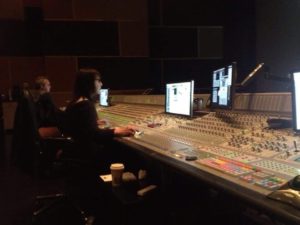 What advice would you give to women in the field or trying to get into the field?
What advice would you give to women in the field or trying to get into the field?
I think there are a lot more opportunities than ever before for women moving into mixing positions. The field is open to it. I don’t believe it’s even a question of being a woman mixer – it’s a qualified mixer. Years ago people would say “she’s one of the best chick mixers etc.…” and I would say, ‘” Umm … I’m a mixer” I just happen to be a chick. We are mixers. Nuff said!!
As far as getting into it and coming up through the channels – it’s a long road. It’s a very satisfying road. Ultimately, you do have to learn how to have your life, while still devoting the time needed to have the gig. I don’t buy tickets for anything unless it’s a Saturday night or Sunday … and even then I don’t know for sure; travel plans are always meant to be changed. You have to be willing to sacrifice the aspects of “normalcy” that most people are accustomed to. I tend to believe that it can be a bit more difficult for women…speaking personally, in my past experiences sometimes the men in my life have not always understood that I just can’t get up and leave a session that’s going into OT because we had planned together that night. Oh Well. That’s why those are in my past!
How do you find work-life balance?
What balances me is being able to go and spend a couple of weeks at my home in Mexico – or as I call it “in my other world.” I will always try to get out of town when I’m not working. When I’m in town and have time off, I try and catch up with my friends, more time with my man and then there’s my other passion which is baking bread. I was informed almost nine years ago that I had to get off gluten. After asking wtf that was, I started researching on the internet and experimenting with baking. Now, I grind all my own flours and bake whenever I have the time. It’s just all mixing! Be it flours or eq’s or levels..it’s mixing to get what you want. It’s sort of like my out of the dub stage Zen place!

Cinema Audio Society Board
Final thoughts?
I think a mixer can only mix for what they hear, and that doesn’t always please everybody all the time. I’ve left shows because I’ve felt I wasn’t the right person for the job anymore.. and sometimes it’s the clients that want to make a change… shit happens, I’ve learned that you have to just roll with it.
At this point in my career I want to continue to work with people I respect and enjoy, and with people who allow me the freedom to be creative and fulfilled in my work. As far back as I can remember I’ve always tried to be as honest as possible and give 150% of myself to all my projects. I truly don’t know how to do it half-assed! My best explanation of what I tell people I do for a living is “I get to play in a big sandbox with a bunch of crazy people, and paint pictures with sound.” Gotta love that.
More on Sherry
Find More Profiles on The Five Percent
Profiles of Women in Audio
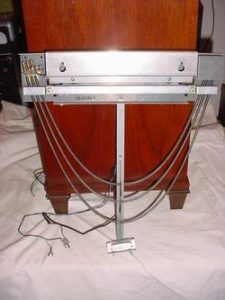
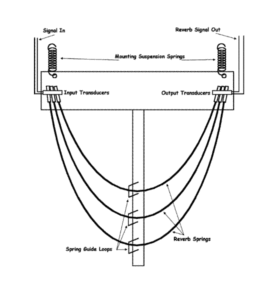
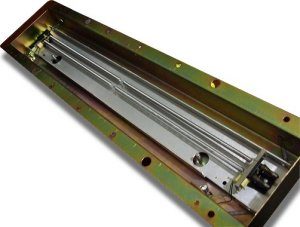
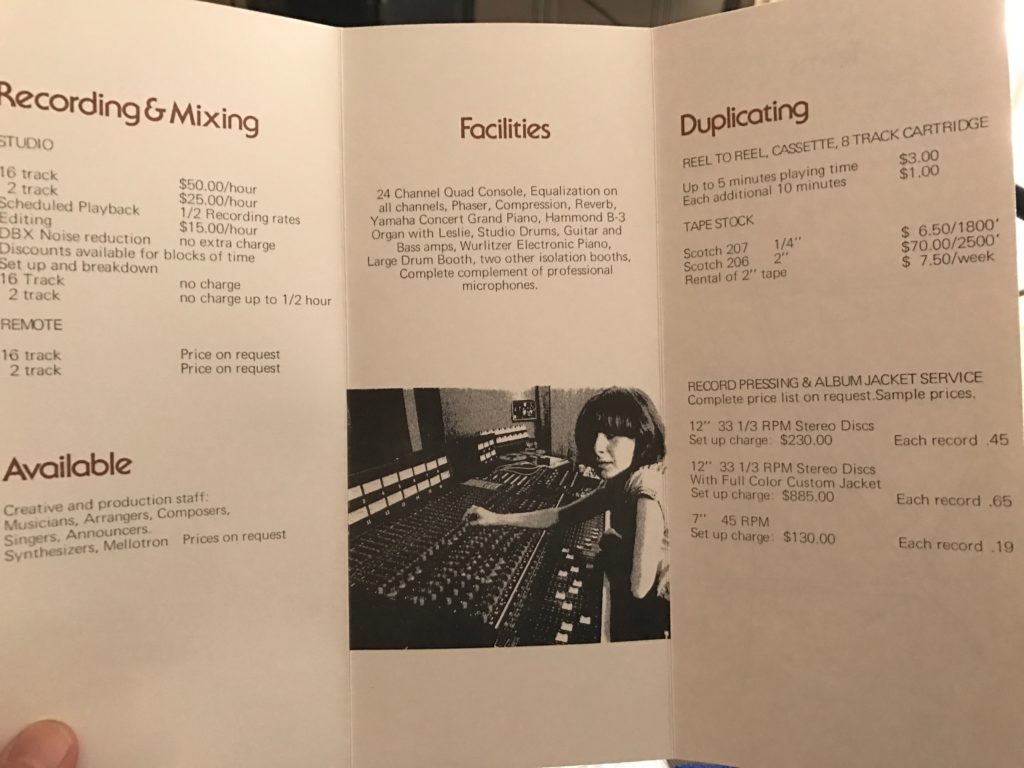
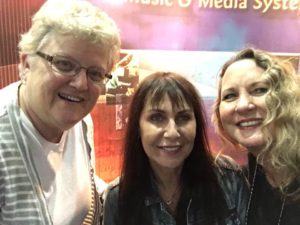

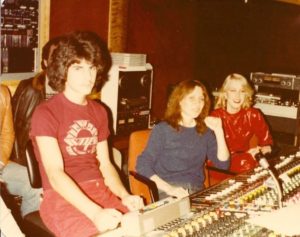
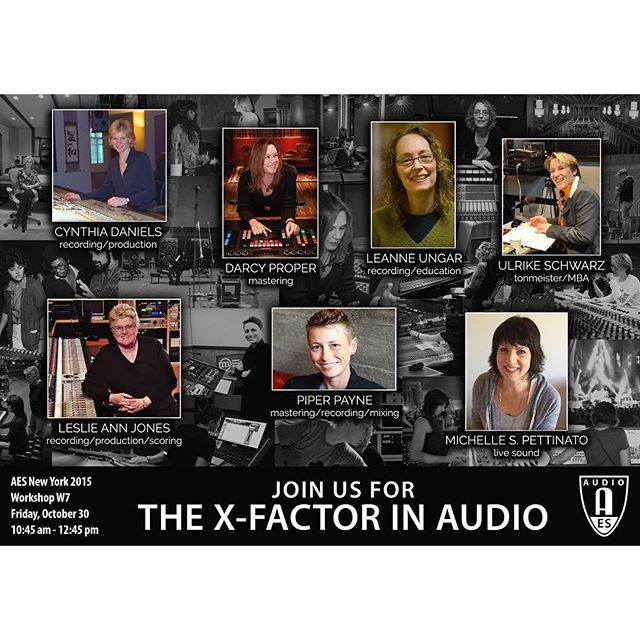

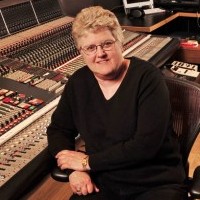 Don’t be afraid to raise your hand
Don’t be afraid to raise your hand